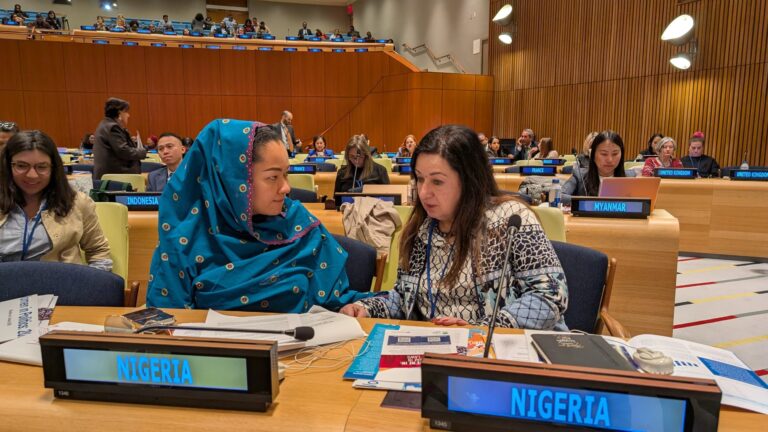The fate of suspended Senator Natasha Akpoti-Uduaghan, representing Kogi Central Senatorial District, will be determined within the next 90 days, The PUNCH reports.
Constituents from her senatorial district had last week submitted a recall petition against her to the Independent National Electoral Commission.
INEC is currently in the process of verifying the signatures submitted by petitioners.
To proceed with the recall, the petition must be signed by more than half of the registered voters in the Kogi Central District.
If this requirement is met, the commission will conduct a referendum within 90 days from the petition’s receipt.
According to INEC’s detailed Regulations and Guidelines for Recall 2024, if the petition reaches the necessary threshold of support, the commission will issue a public notice detailing the time, date, and location of the referendum.
However, if the petition fails to meet the required number of signatures, a public notice will be issued to that effect.
According to INEC’s regulations, the commission shall “conduct a referendum for the recall of the member where it has verified that more than one half of the persons registered to vote in that member’s constituency have endorsed the petition, which shall take place not later than 90 days from the date of receipt of the petition for recall.”
INEC is expected to “issue a public notice or announcement stating the day, time, location and details for the referendum.”
“Where the signatures of the petitioners verified is not more than one-half of the registered voters, the Commission shall issue a public notice or announcement to that effect.”
The recall petition stems from several controversies surrounding Akpoti-Uduaghan, who was suspended from the Senate on March 6 for alleged “gross misconduct” following a disagreement with Senate President Godswill Akpabio.
The petition, which cites “loss of confidence” as the primary reason for her recall, accuses Akpoti-Uduaghan of gross misconduct, abuse of office, and deceit.
Accompanying the petition were six bags filled with documents containing signatures gathered from over half of the 474,554 registered voters in Kogi Central.
These signatures were collected from 902 polling units across the five local government areas of Adavi, Ajaokuta, Ogori/Magongo, Okehi etc.
In line with the commission’s regulations, a notification letter has been sent to Akpoti-Uduaghan, informing her of the petition’s receipt.
A copy of the letter has also been forwarded to the presiding officer of the Senate.
The Executive Director of the Centre for Anti-Corruption and Open Leadership, Debo Adeniran, explained that “previous attempts for recall have failed largely due to the complexity of collecting and verifying the required signatures.”
Despite the challenges, Adeniran believes that Nigeria must strive to ensure that its democratic practices reflect true democratic values.
He pointed to the example of the United States, where citizens can easily recall officials who no longer wish to serve.
“The National Assembly must take the lead in enacting laws that simplify the recall process for elected representatives, not just at the legislative level but also at the state and local government levels,” Adeniran said.
Adeniran called for a review of the laws governing the recall process, suggesting that “if they prove too cumbersome or ineffective, they should be amended to make it easier for constituents to remove elected officials they no longer wish to serve.”
Also, the Executive Director of the Civil Society Legislative Advocacy Centre, Auwal Rafsanjani, emphasised the need for a “national debate on the recall process of elected officials in Nigeria, calling for a legal framework that allows recalls only on legitimate grounds.”
Speaking on the complexities of the recall system, Rafsanjani explained that recalls should be based on popular demand driven by a violation of public trust, such as corruption, human rights abuses, or failure to perform duties.
Rafsanjani called for a nationwide discussion to refine the recall process, ensuring transparency and fairness.
“This is not something that can be done by a few people alone; it requires a thorough national conversation to ensure that the recall system is transparent, legitimate, and based on clear, evidence-based reasons for removal,” he said.

